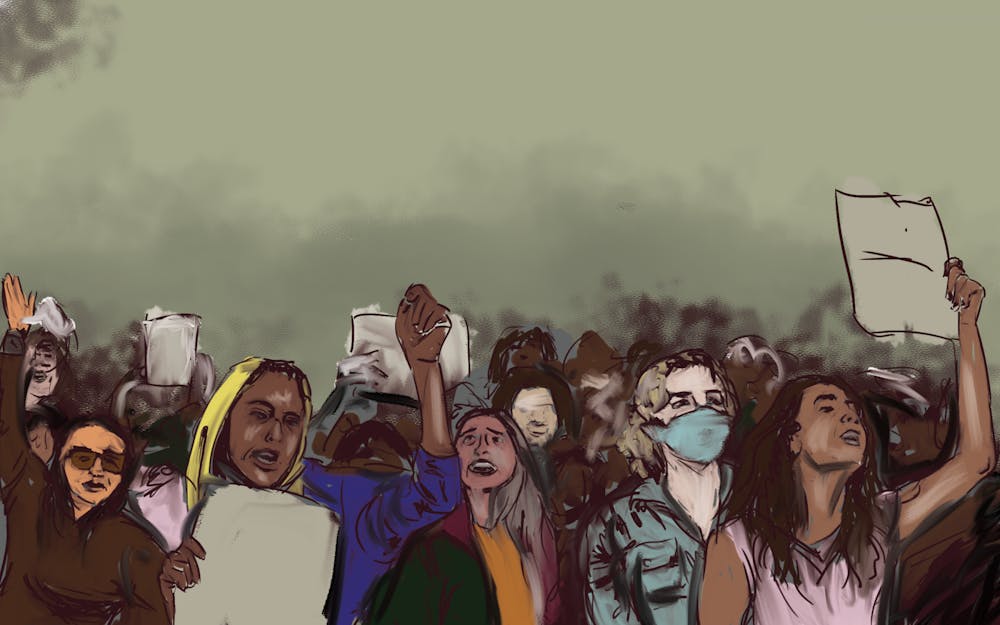International Women’s Day, celebrated every year on March 8, is a socialist holiday. This might come as a surprise, given that the day now seems to only be observed by advertisers trying to sell you their version of progressivism, but the roots of International Women’s Day lie in the labor militancy of the early 20th century.
The first International Women’s Day was held in 1911 to coincide with the 40th anniversary of the Paris Commune – a brief socialist government in France which Marx called the first “dictatorship of the proletariat” – drawing over a million people in various rallies worldwide advocating for suffragist and socialist causes.
And it was on International Women’s Day in 1917 when revolution, largely organized by socialists, erupted in Russia, leading to the end of tsardom forever. When the Bolsheviks came to power later that year, Vladimir Lenin would declare International Women’s Day a national holiday in the Soviet Union.
[Related: OPINION: She who struggles: Assata Shakur and the radical Black women who fought for civil rights]
Women have always been integral to the socialist movement, but because of their radical politics, their stories are often ignored in popular histories of women. Socialist women deserve to have their histories remembered, not only because of their importance to the socialist movement but because they have been in the vanguard in the fight for women’s equality in general.
For example, all intellectual roads to socialism lead back to Karl Marx, but Marx’s works would have never been read if not for his wife, Jenny.
Jenny Marx was a revolutionary in her own right, and perhaps her greatest contributions to modern socialism were her efforts to transcribe her husband’s work. Marx’s handwriting was notoriously terrible, and Jenny spent hours and hours working alongside him acting as a Marxist Rosetta Stone.
Born into an aristocratic family, Jenny left her wealth behind to marry the Jewish Marx — something frowned upon in an antisemitic society. She stuck around with Marx even as their family struggled through poverty and were hounded by the authorities due to their political activism. There is no Marxist tradition today without the efforts and devotion of Jenny Marx.
Alexandra Kollontai is another socialist woman worth celebrating. Though many in this country have probably never heard of her, her legacy is vast. Kollontai was a Bolshevik revolutionary dedicated to improving the lives of proletarian women. In one of her best and most famous works, “The Social Basis of the Woman Question,” she argued working class women cannot find common ground with liberal feminists because they have fundamentally different class interests.
“A woman can possess equal rights and be truly free only in a world of socialized labor, of harmony and justice,” Kollontai wrote. “The feminists are unwilling and incapable of understanding this; it seems to them that when equality is formally accepted by the letter of the law they will be able to win a comfortable place for themselves in the old world of oppression, enslavement and bondage, of tears and hardship.”
In other words, Kollontai wasn’t interested in having more women capitalists, or more women politicians holding power in undemocratic institutions. After all, a woman capitalist implies many more women workers living in subjugation. Kollontai laid the groundwork for a new type of feminism, this time of a socialist variety.
[Related: OPINION: A girlboss won't save you: how capitalism oppresses women]
And while American suffragists were still trying to win the right to simply vote in undemocratic, bourgeois elections, Kollontai became the first woman in a governing cabinet as the Minister for Social Welfare in the Soviet Union. In this role she spearheaded efforts to decriminalize abortion, grant women the right to a divorce and give women the ability to retain control over their own wages.
Other socialist countries completely transformed the lives of women for the better as well. The former German Democratic Republic, for example, was touted for its numerous childcare facilities, having far more than their counterparts in the west. Mothers living in the eastern part of Germany today still benefit from the socialist policies of the G.D.R.
Socialist countries led the way in advancements for women and were far ahead of the so-called liberal “democracies” in the western world. Even today, socialist countries like Cuba serve as an example of the socialist commitment to empowering women. For example, 53% of the Cuban National Assembly was made up of women in 2021. To compare, that number is only 28% in the U.S. Congress.
Kollontai, Jenny Marx and millions of socialist women wanted to uplift all women and fought for universal equality. They knew that winning equality in the existing, capitalist society would leave the vast majority of women – workers – behind. This International Women’s Day, let us remember them and their mission – and let us see it fulfilled.
Jared Quigg (he/him) is a junior studying journalism and political science.




